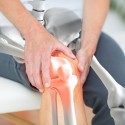12 Ways to Protect and Boost Your Child’s Bone Health
Your baby’s bones will be formed by what you eat during your pregnancy.
As such, having a well-balanced diet even at this stage is crucial for both you and your child’s health.
It is also essential that you are on the right track regarding the normal pregnancy weekly development and that you see your specialist frequently.
This is because regular check-ups will help your doctor diagnose any current and possible health issues and treat them before they become bigger problems.
Your important job of protecting and taking care of your child’s bones, however, won’t end once you’ve given birth.
Even if your child is older, you need to continue taking the lead in ensuring that his skeletal system is in optimum health.
Keeping Your Child’s Bones Strong and Healthy
Children’s bones are more elastic and porous than adult bones.
However, they are still prone to fractures and other issues, and so you need to look after their bone health all the time.
Below are useful tips that will help you support your child’s bone health and strength:
Make Sure Your Child Gets Enough Calcium
Calcium is an essential mineral for bone health.
It is also the primary mineral found in the bones.
According to the Institute of Medicine:
- Babies 0 to 6 months old need 200 mg of calcium per day
- Babies 6 to 12 months old need 260 mg of calcium per day
- Children 1 to 3 years old need an average of 500 mg of calcium per day
- Children 4 to 8 years old need an average of 800 mg of calcium per day
- Children 9 to 18 years old need an average of 1,100 mg of calcium per day
You can help boost your little one’s intake of calcium by including more foods rich in this mineral in his diet.
Foods that are great sources of calcium include:
- Dairy products such as milk, cheese, and yogurt
- Tinned sardines (with bones)
- Green leafy vegetables such as kale and collard greens
- Peas
- Dried figs
- Nuts and seeds
However, make sure you spread your child’s intake of calcium throughout the day for better absorption.
Also, it is best for kids to get calcium from healthy, natural foods and beverages instead of supplements.
But if your child’s diet is low in calcium and he may be averse to making changes, you can consider giving him a supplement prescribed by the pediatrician.
Boost Your Child’s Intake of Vitamin D
Vitamin D helps bones absorb calcium; as such, it is another nutrient that your child will need to maintain proper bone health.
To make sure your child gets the right amount of vitamin D, allow him to play or spend some time outdoors.
However, he should not be exposed to direct sunlight, especially when the sun is at its hottest (between 10 a.m. and 4 p.m.).
You should also include more vitamin D-rich foods in your kid’s diet such as eggs, tuna, and sardines.
When shopping, also choose foods that are fortified with vitamin D such as breakfast cereals and sandwich spreads.
Since there aren’t many foods that are rich in vitamin D, you can also consider giving your child a supplement that contains this nutrient.
Consult your child’s pediatrician to be sure that you choose the right brand and product.
Include More Foods High in Magnesium and Zinc
Aside from calcium, other nutrients play an important role in bone health.
These include magnesium and zinc.
Magnesium helps convert vitamin D into the active form that promotes calcium absorption.
Foods rich in this mineral include spinach, Swiss chard, pumpkin seeds, almonds, black beans, and yogurt.
Zinc, on the other hand, is another trace mineral found in the bones.
Although only small amounts of this nutrient are needed, zinc plays an important role in the formation of cells that build the bones.
It also helps prevent the unhealthy breakdown of bones as well.
According to a study published in 2015, zinc supplements help support bone growth in children.
However, you have to consult a specialist first before giving your child a zinc supplement.
Foods high in zinc include lamb, beef, pumpkin seeds, chickpeas, cashews, mushrooms, shrimp, spinach, and chicken.
Make Sure Your Child Consumes Enough Healthy Protein
Protein makes up nearly 50% of a bone.
As such, it is important that your child gets the right amount of this nutrient daily to help keep his bones strong and healthy.
According to an article published in NCBI, low protein intake can reduce calcium absorption and affect the speed of bone formation and breakdown.
Meat, of course, is the most popular source of protein.
However, you need to give your child only the recommended amount of meat per day and include other foods rich in protein in his diet.
Leading nutrition advisors say these include:
- Eggs
- Beans
- Seafood
- Soy
- White meat poultry
- Lean beef
- Dairy products such as milk, cheese, and yogurt
Encourage Your Child to be More Physically Active
If your child gets enough exercise from working out or by playing, you make sure that he improves his bone density.
It is therefore important that you get your child to engage in play or any physical activity for at least an hour every day.
Getting your little one to experience an increase in his heart rate and some sweating will help promote bone strength and health.
This also means limiting the time your child spends in front of the TV and computer.
Make sure you encourage him to go outside and play (to get some vitamin D, too) instead of tinkering with his tablet and other handheld devices nonstop.
In case your child is not walking yet, you can still help him build bone strength and health by allowing him to play on the floor.
Once your child can walk, encourage him to run, climb, jump, and engage in other bone-strengthening activities for at least three hours a day.
However, make sure these activities are spread throughout the day so that your child won’t get tired easily.
Teach Your Child Bone-Strengthening Exercises
Once your child becomes eager to become more active, get them involved in weight bearing and high-impact activities since these help greatly in developing bone strength.
To get the most benefits from these activities, your child’s movements have to be forceful, quick, changing in direction, not stationary, and there must be progress in their skills.
These activities can include:
- Running
- Skipping
- Jumping jacks
- Hopscotch
- Frog leap
- Team games
- Weightlifting
If your child likes skateboarding or riding bikes, you can still have him continue with these sports, but unfortunately, they do not promote healthy bone impact.
As such, encourage your child to engage in high-impact activities in addition to his riding sports.
Limit Your Child’s Soda Intake
Soda and most carbonated drinks contain a lot of preservatives and other unhealthy ingredients.
Drinking too much of these beverages can pave the way for various types of degenerative diseases such as diabetes, obesity, tooth decay, and even osteoporosis.
One active ingredient of sodas is phosphoric acid, a substance that can decrease calcium absorption in the bone.
Whenever a person drinks large amounts of sodas, the body will try to neutralize the acids and will be forced to draw ample amounts of alkalizing calcium compounds from the bones.
This, in turn, can cause bones to weaken gradually.
You can help support your child’s bone health by encouraging your child to drink more milk and water.
Teach your child to always make healthier beverage choices as well.
Make sure you educate your child about the negative effects of unhealthy beverages on his body.
Minimize Your Child’s Caffeine Intake
Kids, especially those below 12 years old, are usually not allowed to drink coffee.
But your child can still get caffeine from other beverages such as sodas, iced tea, and energy drinks, and certain foods such as chocolates.
Excessive caffeine, to some extent, can increase the loss of calcium from the body.
This, of course, will affect the strength and health of a person’s bones.
You can get your child to reduce his caffeine intake by encouraging him to choose healthier beverages, including water and milk.
You can also offer fruit juices and other caffeine-free drinks but only as second options.
Reduce the frequency of giving your little one chocolate and other caffeine-loaded, sugary snacks or treats as well.
Lower Your Child’s Salt Intake
Different studies show that excessive salt or sodium intake seeps calcium from the bones.
The kidneys have the important job of filtering excess salt into the urine.
When these organs let the sodium pass out of the body, calcium flows out with it.
As such, if your child consumes a lot of salt, the more calcium he will lose.
As a result, your little one will need more calcium in his diet to replace the lost amounts.
When you reduce your child’s daily salt intake, you lower the risk of bone breakdown and calcium loss.
This means not giving your child salty snacks such as potato chips and canned foods that are loaded with sodium.
You have to reduce salt use and avoid adding other artificial seasonings that contain high amounts of sodium when cooking.
Keep in mind that when you minimize the use of salt, the benefits will also spill over to other parts of your child’s body and to your own health, too.
Make Sure Your Child Maintains a Healthy Weight
A healthy weight can also help promote good bone health.
Studies show that obesity can harm bone quality.
The stress of excess weight on a body can also increase the risk of fractures.
Aside from giving your child well-balanced and healthy meals, stop stocking sugary and salty foods that contain too many artificial ingredients and preservatives.
Give them natural and nutritious snack options instead of the cookies and sweets that are often provided as treats.
You can also help your child keep a healthy weight by giving him the age-appropriate meal and snack portions.
Be a role model for healthy eating as well so that your child can develop the right habits.
Avoid Putting Your Child on an Extremely Low-Calorie Diet
Although you want your child to have a healthy weight, don’t go overboard.
This means not giving your child an excessively low-calorie diet and getting them to lose an unhealthy amount of weight.
Poor or low body weight can lower estrogen levels which can reduce bone strength.
Poor nutrition and reduced muscle strength can also acerbate this issue.
However, if your child has been advised to lose weight, make sure he gets the nutrients he needs and that he does plenty of weight-bearing exercises.
Have Your Child Undergo Bone Density Testing
Finally, if you want to take a more proactive stand regarding your child’s bone health, have him undergo a DXA scan.
You will get a quick and painless picture of your child’s bone health through this simple X-ray test.
This test measures bone mineral density and can help determine any risks of osteoporosis and fracture.
To get a clear picture of your child’s bone health and quality, find a clinic or center that offers the full range of tests, including diagnosis and treatment.
Ideally, they should have a team of experts that specialize in children’s bone health and issues.
Typically, your child will undergo a single comprehensive evaluation.
This may include an assessment by a registered dietitian and physical therapist or exercise physiologist, if necessary.
Depending on the issue, an individualized care plan will be created which can include bone density evaluation, laboratory testing, nutrition interventions, and physical activity recommendations.
Medical treatments may also be recommended and follow-up care will be coordinated.
Conclusion
Your child’s bone health plays an important role in his overall wellness now and in the future.
In general, making changes in your child’s lifestyle, even small, gradual ones, will help greatly in maintaining and improving his bone health and strength.
The right amount and quality of exercise coupled with a well-balanced diet can ensure that your child has strong bones and won’t be prone to fractures and other issues.
Your child’s pediatrician and other health experts can also share their expertise so that you can be sure you are doing everything you can to support your child’s bone health.
FDA Compliance
The information on this website has not been evaluated by the Food & Drug Administration or any other medical body. We do not aim to diagnose, treat, cure or prevent any illness or disease. Information is shared for educational purposes only. You must consult your doctor before acting on any content on this website, especially if you are pregnant, nursing, taking medication, or have a medical condition.
HOW WOULD YOU RATE THIS ARTICLE?





